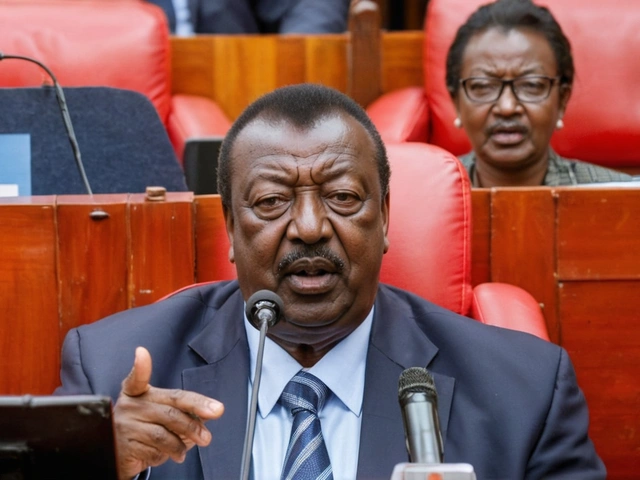Calls for a Ban on Miraa and Muguka
In the bustling northeast region of Kenya, a group of Muslim clerics has raised concerns that have sparked intense debate within the community. The clerics, led by the prominent Imam of Mandera County, Sheikh Mahat Osman, have called for an urgent ban on the sale and consumption of miraa and muguka. During a significant meeting with the County Commissioner of Mandera, Sheikh Osman articulated the clerics' grave concerns regarding these substances, which they believe pose substantial risks to the population's health and social well-being.
The clerics argue that miraa and muguka, both stimulant plants commonly chewed for their psychoactive effects, have grown increasingly popular in the region, particularly among the youth. Sheikh Osman emphasized that these substances not only compromise the health of consumers but have also become a catalyst for rising crime rates across the region. The consumption of miraa and muguka, according to the clerics, undermines educational and economic achievements, creating a significant hurdle in the community's path to development.
The Social Implications
It is no secret that substance abuse can ripple through communities, distorting the social fabric. In the context of Northeastern Kenya, where regions like Mandera, Wajir, Garissa, and Marsabit form the backbone, the clerics have observed a worrying trend among the youth. The high number of young individuals engrossed in the abuse of miraa and muguka has dampened their prospects, both in education and economic realms. As Sheikh Osman mentioned, 'when our children are high on these substances, they are not in school, not learning, and certainly not planning for a productive future.’
The clerics' compassionate concern extends to the rising crime rates attributed to these substances. The correlation, as they see it, is clear—drug abuse leads to higher crime rates, which not only tarnishes the region's reputation but also makes it difficult for residents to live peacefully. Families have suffered; homes have been broken, and a once-cohesive community has found itself grappling with internal strife.

A Community in Crisis
The devastation of miraa and muguka is not just about personal health or individual choices; it’s a broad societal issue. The use of these substances has become so ingrained in the daily lives of many that extricating them seems like an impossible task. Sheikh Osman pointed to the economic stranglehold that ring the communities—livelihoods have gradually become dependent on the trade of miraa and muguka, further complicating the desire to impose a ban. Nonetheless, the clerics remain adamant that a long-term solution is necessary for the betterment of the community.
One critical aspect they recognize is the need for alternative livelihoods for those economically reliant on these substances. The clerics have proactively expressed their willingness to work hand-in-hand with the government to navigate this transition. They suggested exploring sustainable agricultural practices, vocational training, and other forms of enterprise that do not pose such a dire risk to public well-being. 'We’re not just advocating for a ban; we’re advocating for a better future for our people,' stated Sheikh Osman.
The Legal and Ethical Quagmire
The push for a ban brings to the fore an ongoing debate: should miraa and muguka be completely outlawed, or is there a space for regulation and control? Advocates for legalization argue that a controlled and regulated market could mitigate some of the risks associated with these substances. They use examples from other regions where regulation has reportedly led to decreased abuse and associated social issues.
On the other side, opponents of legalization, like Sheikh Osman and his colleagues, warn that the very nature of these substances makes regulation precarious. The potential for misuse remains high, and the current level of enforcement and public awareness may not be robust enough to handle a regulated system. This dilemma positions the ethical responsibility of the government at a critical crossroad.

The Road Ahead
As the regional government of Northeastern Kenya mulls over the clerics' call to action, the stakes could not be higher. Whether they will heed the call for a total ban or consider a regulated approach, the decision will undoubtedly influence not only the public health landscape but also the community's socio-economic fortitude.
The clerics' appeal has brought much-needed attention to an urgent public health issue, and their willingness to collaborate on finding viable solutions sets a positive tone for future discourse. A multi-faceted approach involving education, economic development, and robust healthcare interventions may be the key to addressing the miraa and muguka problem effectively.
Ultimately, it is a complex issue that requires carefully considered solutions, taking into account the welfare of all community members. As Sheihk Osman remarked, 'We must pave a path for our children and youth that is free from the shackles of addiction and crime.' By engaging all stakeholders—government, religious leaders, and the community at large—the region hopes to find a way forward that ensures a healthier, more prosperous future for its residents.






